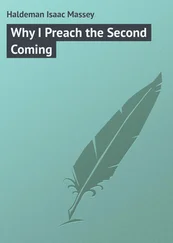We sat in the Datsun and read it, reread it.
“I think they want money,” I said.
Obadiah took his glasses off. He blew on one lens, stuck it half in his mouth and huffed, wiped it off. Did the same with the other one. Then he called a boy over — a Standard Five on punishment named Nashikoto. He’d been hosing out the chicken coop and, alternately, trying to drown the chickens.
“Go get some help.”
A few minutes later, Nashikoto came back with more boys. We got out of the car and Obadiah stood on the hood in his bathrobe and read the letter, the entire letter.
When it was over, he said:
Bless this nation, its magistrates, its Minister of Justice, its constitution. But above all, a prayer for the Messers Tuhadeleni, Enkono, Sheehama & Partners and the poetry they send to Obadiah Horaseb via certified mail. Amen.
He stepped off the rostrum of the hood of the Datsun, his Datsun, and stared at it awhile. “Now bury it,” he said.
It took the rest of the afternoon, but even then the pile still looked like an oafish mound in the shape of a Datsun. Observe the majesty of the law’s corpus, Obadiah says, arms outstretched, his palms up like the balanced scales of justice.
Months since Dikeledi’s rain. The few clumps of green that hung on into summer are now a memory. The only thing that grows in the veld are those bizarre spiderwebs that seem to have no hold anywhere. They seem to float. They greet us in the morning, wet with slight dew, across our faces. Other than this, the days are long and dry. The cows have gotten thin again. And everybody says it’s too hot even for this season.
Pohamba paces back and forth, from the fire pit to his door, from the acacia to his door, his hands behind his back. He looks me over. I’m sitting against a tire trying to read. He paces more. Undrunk Saturday and no transport to Karibib, his boredom rising to anger. Fucking Boers, he says. Fucking, focking Boers. That it’s the Boers’ fault that we have no transport to town is of course true if you follow the chain of causation to the beginning, starting with colonialism moving through apartheid all the way to what this school is doing way the hell out here to begin with, but today, forgive me, I’m only trying to read a little. I toss my teabag to the chickens.
“Listen,” he says. “This happened to a friend of my Uncle Johannes. Late at night, there’s a pound on the door. Like a hammer to your skull in your dreams. This friend of my Uncle Johannes gets up and answers the door. Military police on a late-night visit. ‘What can I do for you, gentlemen?’ ‘Kaffir, we have intelligence that your son’s SWAPO. Now we’re going to punish the womb that birthed a terrorist.’ And so they drag the old guy out of his house, this friend of my Uncle Johannes. They tie him to a goat who’s tethered to a tree. They go back inside. His wife of forty-eight years. Why don’t you go and write this down, Kaplansk? Why don’t you go and get a pen and write it? They stuff a doek in her mouth. Her husband’s in the yard married to a nanny goat.”
Pohamba sucks his teeth, looks at me. I’m slumped against the door. We sit there awhile. I reread the same sentence: I wanted to buy three passable horses for my britzka. I wanted to buy three passable horses for my britzka. I wanted to buy three
“You don’t want to go to the dorp?” he says finally. “If we start now we could have a good night.”
“No thanks.”
“What are you reading?”
“Still this Turgenev book.”
“Russian?”
“Yeah.”
“Communist?”
“I don’t think so. Maybe socialist.”
“Rich?”
“I don’t know. Probably.”
“All socialists are rich. That’s why they’re socialist.”
“He supported the serfs.”
“You don’t like my story? You have better stories to listen to now?”
“I like your story fine.”
Pohamba steps over to me and raises a flip-flopped foot to my face. He holds it there, quivering. I drop the book in the sand.
“Why don’t you do it? Smash my head?”
He waggles his foot in my face. “He supported the serfs,” Pohamba says. “Good for him.”
They emerged one morning out of the veld during those days of ruthless heat. It was a Friday and we were in morning meeting. That morning’s tale concerned, if I remember, the importance of proper dental hygiene in an emerging democracy. The principal was reading to us from a Namibian article about the alarmingly high incidence of tooth decay in Ombalantu. “Citizens must floss. A nation must maintain its oral health. I prefer waxed. Watch me now.”
We hardly had our eyes open. Caffeine never did much for us on Fridays. Then there was a knock on the door, which was strange, because the boys knew better than to disturb this ritual. The principal was working on a trouble spot in the back of his mouth. He pointed to Mavala: “Open it.” He loved to give her orders in public. And Mavala, more out of curiosity than the command, did it. When she saw them, she dropped to her knees, still holding her cup of coffee. After, she said she didn’t know why, only that there was something so heavy about them. They weren’t bedraggled. The most alarming thing was how scrubbed clean they looked. But they ignored Mavala’s outstretched arms. They seemed to understand immediately that the one in the tie flossing his teeth was boss. Of the two boys, one was tall and gangly, with extremely thin arms and long hands. The other was squat, with roving eyes that seemed to troll over us, summing us up. We were pampered. We knew nothing of suffering. All we cared about in the world was our coffee and egg-and-tomato sandwiches at mid-morning break. You never see yourself as plainly as through the eyes of children who aren’t children anymore.
The girl never looked up. She only gazed at her feet, which were sun-cracked and blistered, but somehow too clean. Her not looking up didn’t seem to be out of fear exactly. She appeared past any notion of being scared of anything. She wore a light blue dress with delicately embroidered frills around the edges. Mavala said it looked like a communion dress she once wore. The tall one was probably her brother. They had similar eyes, smallish, worried. He stood next to her, the edge of his bare feet touching hers. The squat one spoke to the principal.
“We greet Teacher.”
“Greetings, child. Where are you coming from?”
“North, Teacher.”
“How far north?”
The boy hesitated. “The border.”
“The other side of it?”
“Yes.”
“Running?”
“Yes.”
“From what?”
The boy hesitated again. “The fighting, Teacher.”
“Savimbi?”
The boy knew better than to take sides, even in another country, even as far south as Goas. “Only from the fighting, Teacher.”
“Parents?”
“None.”
“How did you come here? Who brought you?”
“We walked, Teacher.”
“Walked! From Angola!”
“Yes.”
“Impossible!” the principal cried. “It’s eight hundred kilometers!”
The squat boy’s expression didn’t change. He seemed to be sizing the principal up, seeing he wasn’t a fool, only bombastic.
Quietly he repeated it: “We walked, Teacher.”
The principal looked down at their feet, the first time he had. “You’re hungry?”
“No, Teacher.”
“You need a place to sleep?”
“No.”
“What do you want, then?”
This time the boy didn’t hesitate. “School.”
“What?”
“We want to go to school, Teacher.”
Читать дальше












